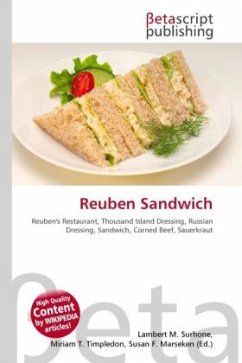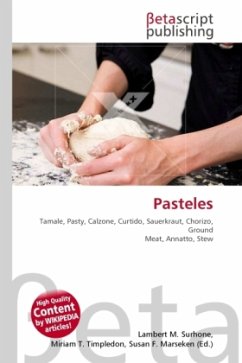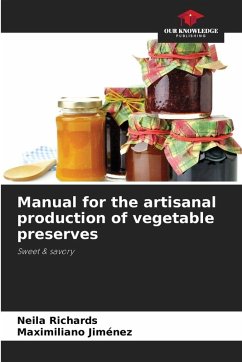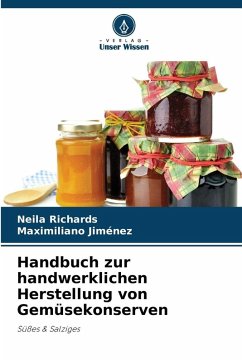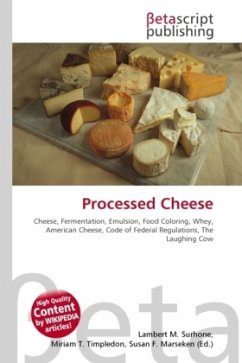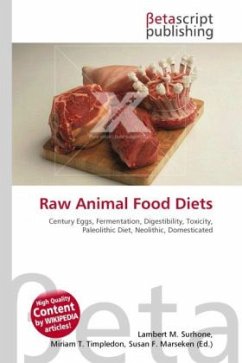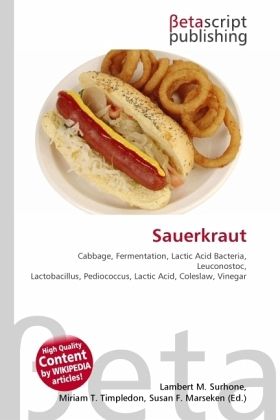
Sauerkraut
Versandkostenfrei!
Versandfertig in 6-10 Tagen
36,99 €
inkl. MwSt.

PAYBACK Punkte
18 °P sammeln!
High Quality Content by WIKIPEDIA articles! Sauerkraut is finely shredded cabbage that has been fermented by various lactic acid bacteria, including Leuconostoc, Lactobacillus, and Pediococcus. It has a long shelf-life and a distinctive sour flavor, both of which result from the lactic acid that forms when the bacteria ferment the sugars in the cabbage. It is therefore not to be confused with coleslaw, which receives its acidic taste from vinegar. The word comes directly from the German language, which literally translates to sour cabbage. In addition to German cuisine, sour cabbage (though no...
High Quality Content by WIKIPEDIA articles! Sauerkraut is finely shredded cabbage that has been fermented by various lactic acid bacteria, including Leuconostoc, Lactobacillus, and Pediococcus. It has a long shelf-life and a distinctive sour flavor, both of which result from the lactic acid that forms when the bacteria ferment the sugars in the cabbage. It is therefore not to be confused with coleslaw, which receives its acidic taste from vinegar. The word comes directly from the German language, which literally translates to sour cabbage. In addition to German cuisine, sour cabbage (though not necessarily the German Sauerkraut) is traditionally used in Austrian, Croatian (kiseli kupus), Slovenian (kislo zelje), Slovak (kyslá kapusta), Polish (kiszona kapusta), Czech (kysané zelí), Dutch (zuurkool), Estonian (hapukapsas), Finnish (hapankaali), Latvian (sk?bi k?posti), Lithuanian (rauginti kop?stai), Danish and Norwegian (surkål), Romanian (varz? murat?), Serbian (?????? ?????/kiseli kupus), Bulgarian (?????? ???? kiselo zele), Russian (???????? ??????? kvashenaya kapusta), Ukrainian, Hungarian (savanyú káposzta), and Belarusian cuisines.



